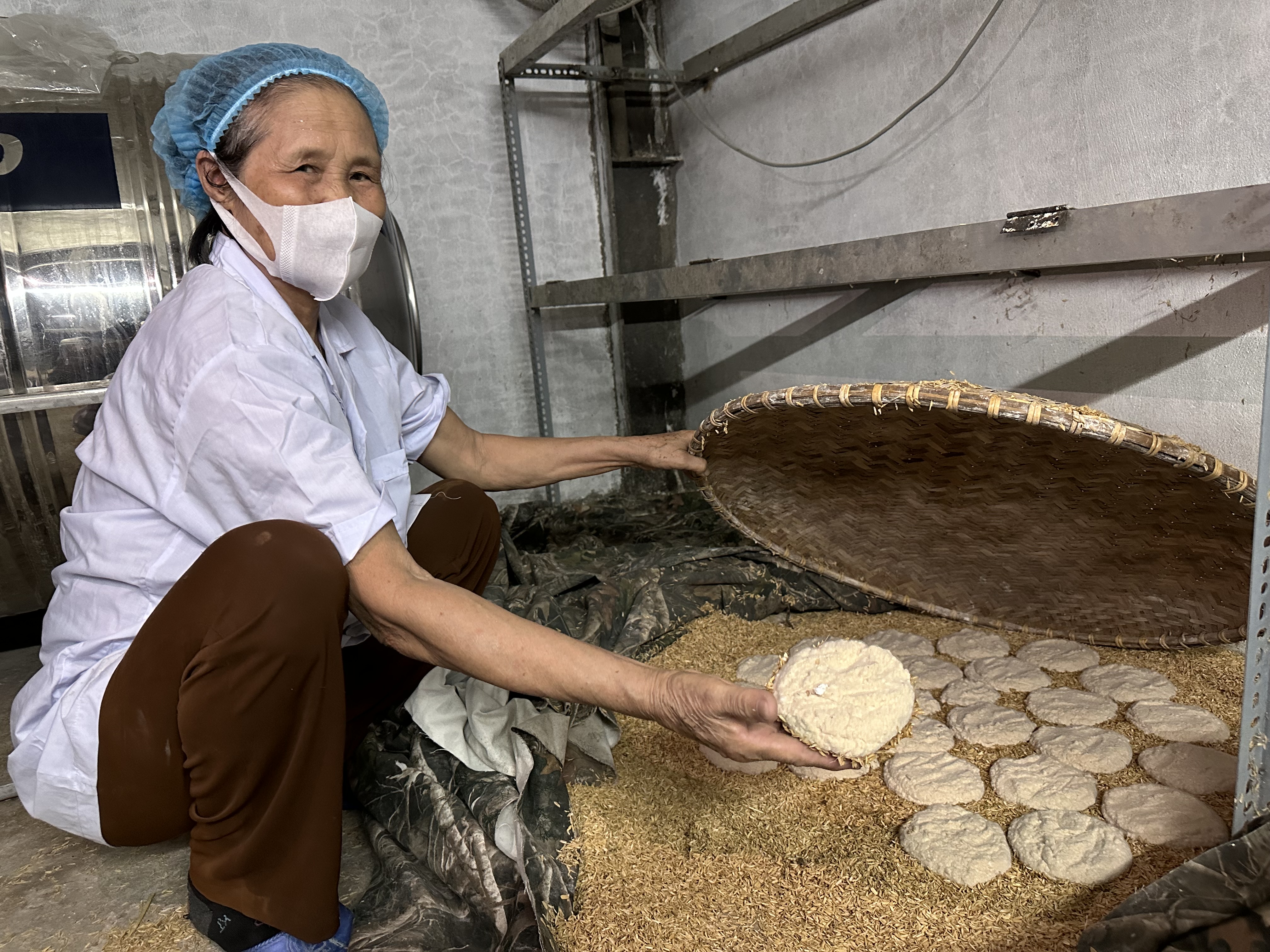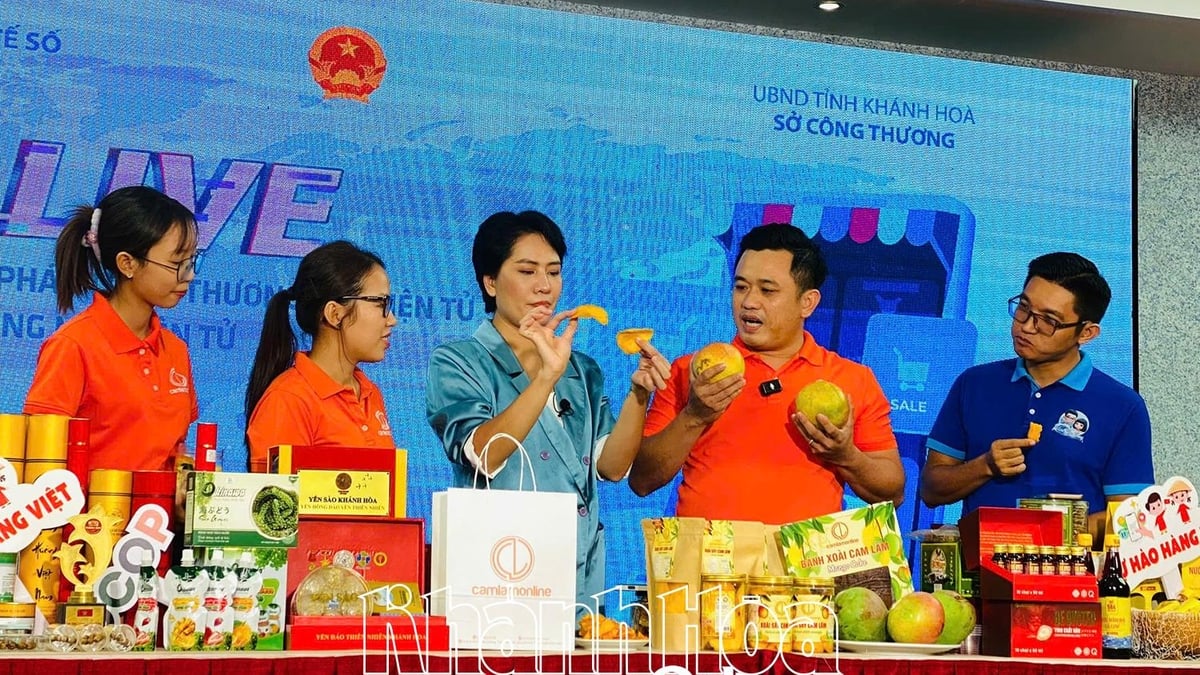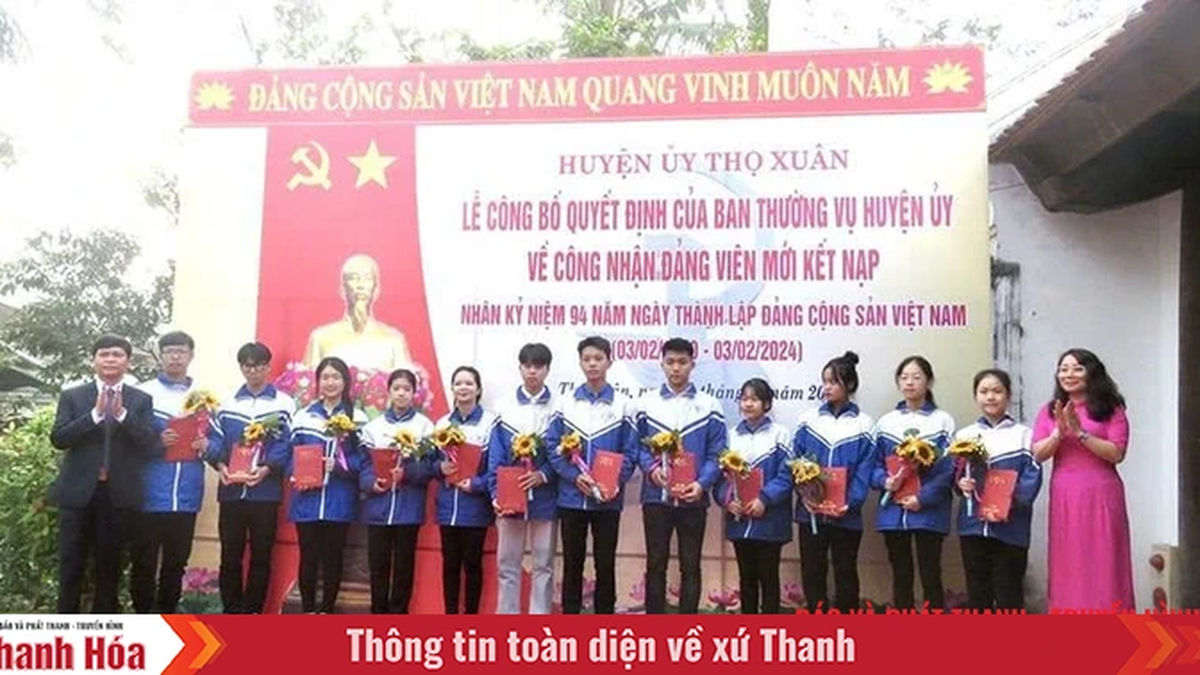Thanks to the harmonious combination of traditional wine production secrets and the application of modern production technology, AIQ Corporation (Yen Son commune, Tam Diep city) has created a wine product that retains the delicious flavor of traditional wine, while eliminating unwanted toxins, ensuring the health of users.
Standardize raw materials
We visited the wine production area of AIQ Corporation on an early autumn day, the sweet and attractive aroma of long-aged wine wafted throughout the factory. Mr. Vu Van Nga, General Director of AIQ Corporation, shared: In traditional wine production in Vietnam, rice and wine yeast are the two most important factors that create a wine with a unique flavor that products in the world do not have.
Usually, most households that make white wine for business use ordinary rice to reduce costs. However, to produce the best quality, smooth, and aromatic wine, the Company uses sticky rice, especially Nep Cai Hoa Vang and Nep Hat Cau grown according to safe procedures, on fields in Yen Son (Tam Diep), Ky Phu (Nho Quan), An Hoa, Nhu Hoa... (Kim Son) - places with suitable soil. In particular, during the milling process, the rice grains are kept intact with the bran layer to ensure nutrition and aroma.
Regarding yeast - which directly affects the efficiency of the fermentation process and contributes to creating a unique flavor for each type of wine, Ms. Nguyen Thi Tham - the technical manager of the Company and also a skilled craftsman in the winemaking profession of Lai Thanh, Kim Son, said: We are using rice yeast with 36 traditional Chinese medicinal herbs, including: star anise, fennel, cloves, cinnamon, cardamom, nutmeg, licorice, ligusticum wallichii, forsythia, amomum, platycodon, ligusticum wallichii... In general, these medicinal herbs have both nutritional value and pharmacological and antiseptic effects, helping to limit the contamination of unwanted microorganisms from the external environment during the fermentation process. The soaking and mixing of rice, traditional Chinese medicinal herbs and yeast seeds are carried out according to the quantity and secret method.
"Cooking 1 bowl of rice using this traditional yeast will only yield about 6 liters of wine, while using common yeast on the market can yield 8 liters of wine. However, the quality and taste of the wine will be much better," Ms. Tham affirmed.

Enhance safety with "aging" technology
In addition to using traditional wine making secrets and standardizing raw materials, AIQ Group Joint Stock Company also invests in modern equipment systems such as rice cookers, electric distillation systems, which are convenient, clean, and save raw materials, maximize product recovery, and limit the generation of toxins.
In addition, the different step of the rice wine production process in the new technology that the Company is applying compared to the old technology is the use of a wine "aging" machine. Newly produced wine still contains many harmful toxins such as: Aldehyde, Methanol, Ester, Acetic acid, etc. If the human body absorbs these substances, it will cause symptoms such as: headache, dizziness, fatigue, thirst... Previously, people removed these substances by storing wine in earthenware jars for a long time before using. But the disadvantage is that it is time-consuming, as well as causing the concentration and aroma of the wine to be lost.
To overcome this, the Company has introduced the latest wine aging machine technology from Europe. The machine uses a multi-polar magnetic field to break and rearrange wine molecules, while simultaneously removing toxins in the wine, rapidly increasing the age of the wine to produce a smooth, delicious wine product.
It is known that currently, in addition to producing white sticky rice wine, AIQ also has cordyceps wine, dong dong wine, and ginseng wine under the Trang An brand. All products are bottled, labeled, traceable, and ensure food safety according to ISO 22000:2018 standards. On average, the Company's wine production line uses about 15-20 tons of rice per month, contributing to the consumption of a large amount of rice products for local farmers.
Ms. Pham Thi Thuy, Deputy Head of the Economic Department of Tam Diep City, said: Currently, consumers are increasingly interested in traditional wine products, but they are also more demanding about quality and safety, which sometimes small-scale, household-scale wine production cannot meet. The traditional wine production model using modern technology of AIQ Corporation solves this problem, while enriching the local traditional craft products.
The city is aiming to build this into an OCOP product, towards commercialization, bringing it into the restaurant and hotel system, as gifts for tourists, thereby promoting the culture and cuisine of Tam Diep land and people in particular, Ninh Binh in general.
Article and photos: Nguyen Luu
Source link





























![[Photo] National Assembly Chairman attends the seminar "Building and operating an international financial center and recommendations for Vietnam"](https://vphoto.vietnam.vn/thumb/1200x675/vietnam/resource/IMAGE/2025/7/28/76393436936e457db31ec84433289f72)







































































Comment (0)